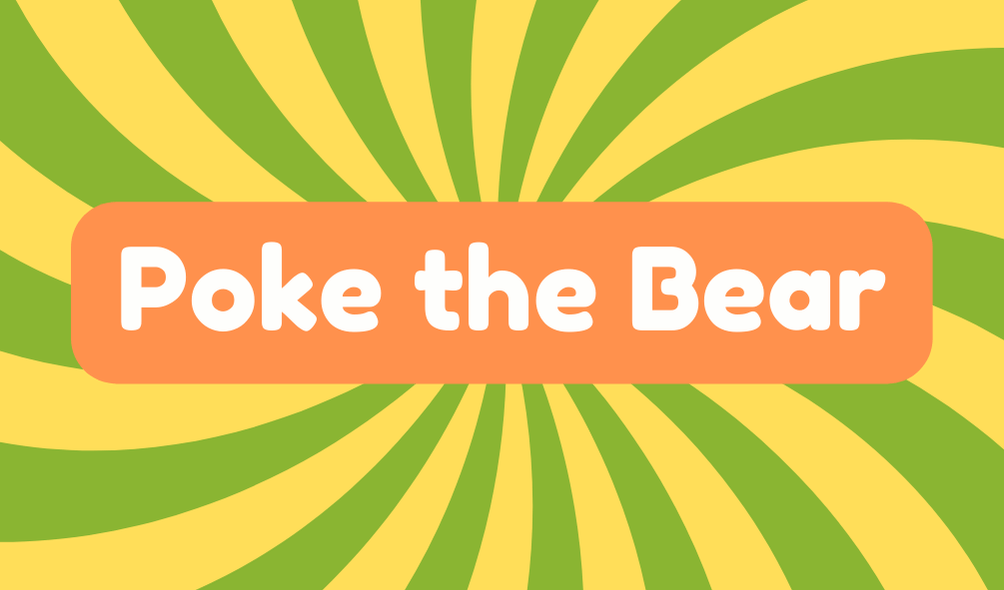The phrase "poke the bear" means to provoke or incite a situation, often leading to unexpected and potentially severe reactions. Its origin is metaphorical, cautioning against irritating powerful forces, dating back to incidents like the 1893 tale of a bear reacting angrily to provocation. Examples of this behavior include challenging authority or engaging in sensitive discussions that may stir tension. Today, this phrase remains relevant, reflecting power dynamics and the need for caution in interactions, particularly in political or social contexts. Understanding its implications can help navigate precarious conversations effectively, inviting curiosity about its broader historical significance.
Synonyms
In the domain of communication, understanding synonyms for "poke the bear" can enhance clarity and depth. This phrase encapsulates the essence of engaging in provocative actions or confrontational behavior, often with unintended consequences. Recognizing alternatives can sharpen your discourse and enable more precise expression. Consider the following synonyms:
- Incite: Encouraging someone to act, often leading to unrest or tension.
- Provoke: Deliberately stimulating a strong reaction, frequently resulting in conflict.
- Stir the pot: Engaging in actions that evoke agitation or debate, often unnecessarily.
These terms highlight the risks entwined with provocative actions, underscoring the need for caution in communication. Awareness of these synonyms not only enriches one's vocabulary but also fosters a more nuanced understanding of the impact of confrontational behavior.
Example of Sentences
Provocative behavior often leads to significant repercussions, exemplified by the phrase "poke the bear." This expression captures the essence of deliberately engaging in actions that may incite anger or conflict, particularly with powerful individuals or entities. Understanding how to navigate provocative situations requires careful consideration of confrontation strategies. Here are some illustrative examples:
- Challenging authority: A junior employee openly criticizes management during a team meeting, provoking potential backlash.
- Sensitive discussions: Engaging in heated debates about religion at family gatherings can stir unnecessary tension.
- Tradition disruptions: Proposing modern changes to longstanding company practices may result in resistance from older employees.
These scenarios highlight the risks inherent in provoking influential figures, emphasizing the need for cautious engagement.
Origin
The phrase "poke the bear" is rooted in vivid imagery, where the act of approaching a bear symbolizes the risk of provoking a powerful and potentially dangerous force. Originating from historical contexts that depict real encounters with these formidable creatures, the phrase conveys profound metaphorical implications. Significantly, an incident in 1893 chronicled the severe consequences of irritating a bear, serving as a cautionary tale. Its popularity surged during the Cold War, with Russia often depicted as the bear, indicating geopolitical tension. This linguistic expression reminds us of the delicate balance between assertiveness and restraint. Understanding this origin is essential as it informs our interactions with influential figures, urging prudence in situations that may invite confrontation and unintended consequences.
Collocations
Collocations related to the phrase "poke the bear" emphasize its contextual usage in various interactions. Understanding these collocations can help individuals navigate situations where poking authority could provoke reactions that may be counterproductive.
Here are three relevant collocations:
- Poking the bear irresponsibly – Demonstrates a lack of awareness about potential fallout.
- Poking the bear for attention – Highlights a motive to stir controversy, often leading to unnecessary conflict.
- Poking the bear during negotiations – Signals a risky approach, potentially sabotaging diplomatic efforts.
These phrases underscore the complexity of interactions involving authority figures and the delicate balance between assertiveness and prudence. As professionals engage with power dynamics, they must remain mindful of the consequences that may arise from deliberately provoking tensions.
How to Use in Everyday Language
Using the phrase "poke the bear" effectively in everyday language involves understanding its context and implications. This expression serves as a cautionary reminder when interacting with sensitive topics, powerful individuals, or volatile situations. To avoid unnecessary conflict, it is essential to approach such discussions using tact and a keen sense of understanding boundaries. For instance, whether in the workplace or personal relationships, consider the potential consequences of your words and actions. By being mindful of how you engage, you can navigate conversations more effectively, ensuring that you do not provoke hostility or backlash. Ultimately, leveraging this phrase wisely promotes healthier communication, allowing for innovation and growth while minimizing the risk of stirring up trouble unnecessarily.
Why Is It Still Relevant Today?
While societal dynamics continue to evolve, the phrase "poke the bear" remains highly relevant today due to the persistent nature of power, authority, and sensitive topics in various aspects of life. In an era marked by political activism and heightened social consciousness, individuals often find themselves maneuvering contentious discussions. This phrase serves as a cautionary reminder of the potential fallout from provoking established norms or influential figures. As people engage in challenging conversations, particularly around issues like social justice, the risk of igniting backlash becomes ever-present. Consequently, understanding the implications of "poking the bear" is essential. It emphasizes the balance between asserting one's views and recognizing the delicate fabric of today's social dynamics, thereby promoting more thoughtful engagement in activism and discourse.







